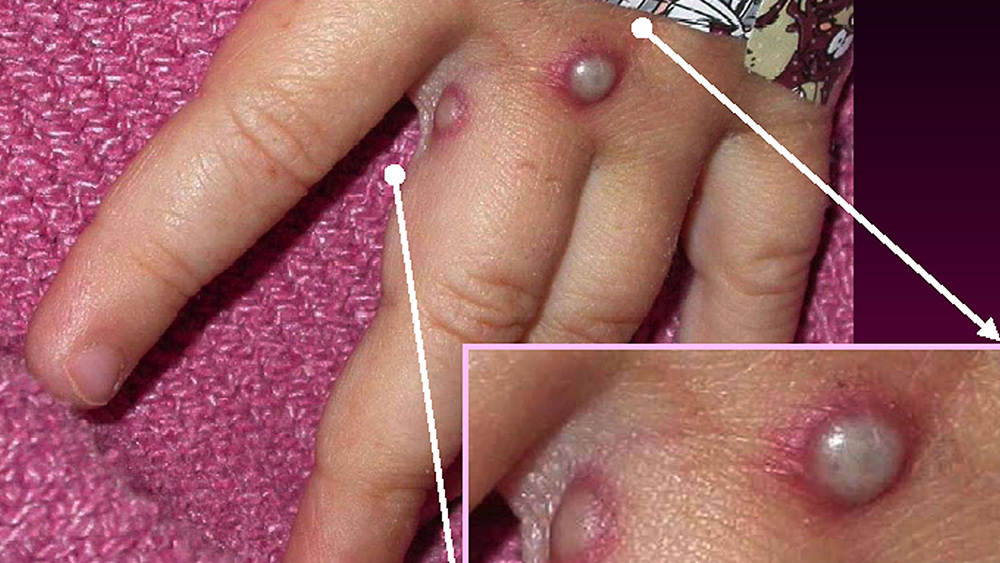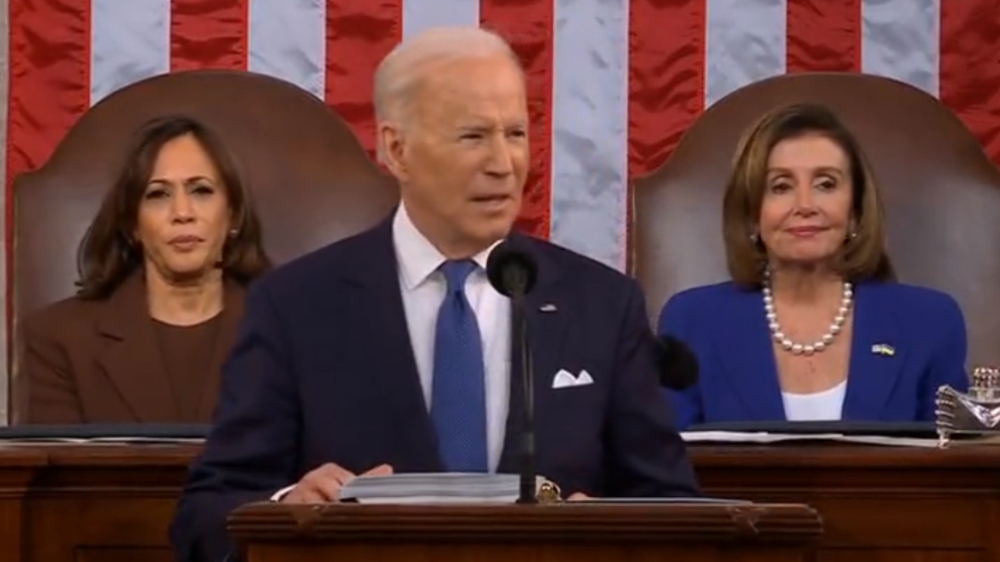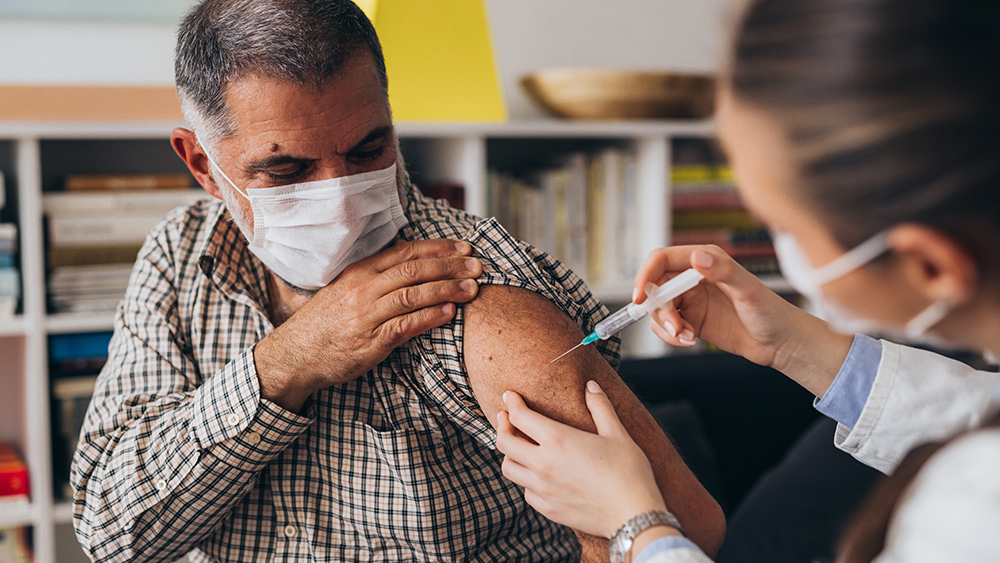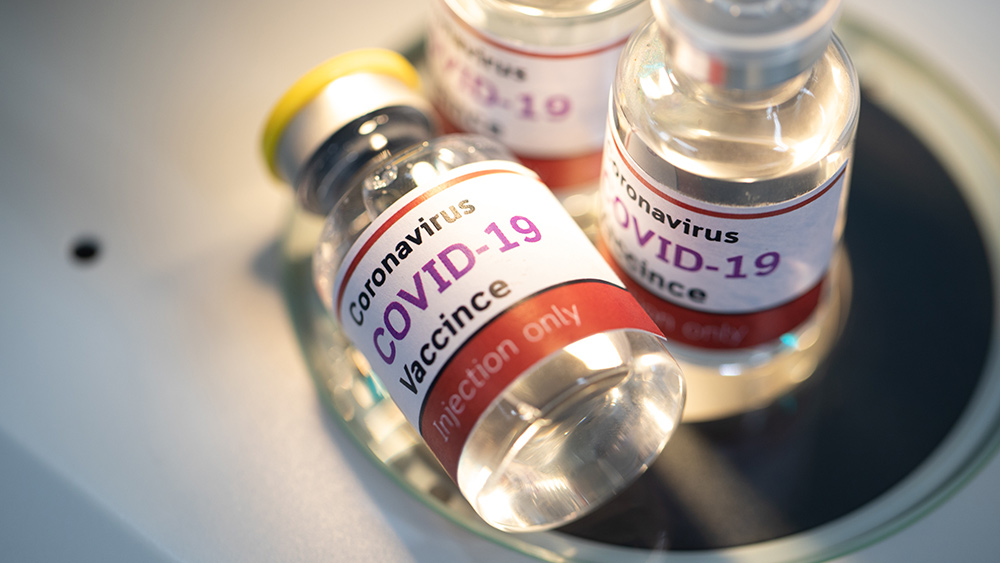Pfizer docs reveal HIGH number of vaccine clinical trial participants withdrawing due to adverse reactions
07/22/2022 / By Ramon Tomey

The recent batch of Pfizer documents released by the Food and Drug Administration (FDA) showed that an “unusually high” number of participants withdrew from the Wuhan coronavirus (COVID-19) vaccine clinical trials. The participants who backed out of the 2020 trials did so due to adverse events stemming from the experimental shot.
Released on July 1, the said documents revealed the full extent of this issue. These 3,611 pages of documents were part of a larger document stash ordered for release under an expedited Freedom of Information Act (FOIA) request. The FOIA request was filed in August 2021 by Public Health and Medical Professionals for Transparency (PHMPT).
The July 1 documents mentioned that all trial participants received either one or two 30-microgram doses of Pfizer’s BNT162b2 vaccine. This same vaccine candidate was granted emergency use authorization in December 2020.
According to Children’s Health Defense, Pfizer conducted its vaccine trials in four countries – the U.S., Brazil, Argentina and South Africa. Many vaccine trial participants backed out after experiencing serious adverse events, while others withdrew over seemingly minor adverse events. A larger proportion of the minor adverse reactions were determined to be related to the shot, while some serious adverse reactions were deemed “not related” to the vaccine.
The document listed down 34 participants who withdrew from the vaccine trials. Two of them experienced serious adverse events deemed “related” to the vaccination.
A 56-year-old woman received her first vaccine dose on Aug. 11, 2020, but backed out the next day after reporting an abnormally fast heart rate and skin itching. She did not have any history of cardiac issues or other health conditions. The investigator in charge of the vaccine trial wrote that “there was a reasonable possibility that the pruritus and tachycardia were related to the study intervention.”
Another participant, a 61-year old woman, received her first dose on Sept. 25, 2020. She subsequently experienced unilateral deafness on Oct. 14, 2020 and withdrew the following day. Her deafness lasted until Oct. 23, 2020, and the investigator mentioned “a reasonable possibility” of it being linked to the vaccine.
Pfizer vaccine worsened pre-existing conditions some participants had
In other instances, some participants backed out after their pre-existing medical conditions became worse than before. Despite this, the investigator overseeing the trials deemed the adverse reactions as unrelated to the vaccine – a finding seconded by Pfizer.
A 56-year-old woman who received her first and only dose on Aug. 12, 2020 withdrew 11 days later on Aug. 23, 2020 because of “worsening coronary artery disease.” She listed coronary artery disease, hypertension, and high cholesterol levels in the body as her medical conditions. However, the investigator attributed her worsened condition to either “hypertensive cardiovascular disease or arteriosclerotic heart disease” instead of the vaccine.
A 46-year-old woman injected with one dose of the COVID-19 vaccine on Aug. 21, 2020, backed out on Aug. 28, 2020 after her brain cancer spread throughout her entire body. The investigator dismissed the idea of her condition being worsened by the vaccine. Instead, it had been “related to secondary disease from lung adenocarcinoma” – which she was diagnosed with back in July 2019. (Related: Idaho doctor warns about COVID-19 vaccines causing spike in cancer diagnoses.)
A 50-year-old woman received Pfizer’s COVID-19 vaccine on Aug. 26, 2020. She listed several ongoing medical conditions, including Type 2 diabetes and diabetic neuropathy. The woman developed a diabetic foot ulcer on Sept. 14, 2020 – leading to her forced withdrawal two days later on Sept. 16, 2020. Again, the investigator dismissed the possibility of the vaccine having to do with the woman’s foot ulcer, saying “there was no reasonable possibility” for it.
The dangers of the Pfizer COVID-19 vaccine would not come to light had PHMPT not filed its FOIA request. Originally, Pfizer and the FDA argued that the FOIA request filed by the group could take 75 years to accomplish. But this failed to convince U.S. District Judge Mark T. Pittman, who ordered the two entities to comply with the request at the soonest.
“The court recognizes the ‘unduly burdensome’ challenges that this FOIA request may present to the FDA. [However,] the court concludes that this FOIA request is of paramount public importance … [and] that the expeditious completion of plaintiff’s request is not only practicable, but necessary,” Pittman wrote in his Jan. 6 decision.
BigPharmaNews.com has more stories about Pfizer’s clinical trials for its mRNA COVID-19 vaccine.
Watch this news report about a woman left paralyzed hours after getting injected with the Pfizer vaccine.
This video is from the Freedom Warrior channel on Brighteon.com.
More related stories:
FDA should need only ’12 weeks’ to release Pfizer data, not 75 years, plaintiff calculates.
Documents show Pfizer’s COVID-19 vaccine causes autoimmune disease and VAED.
Pfizer, FDA know the COVID vaccine is dangerous, but they push it anyway.
Court REJECTS FDA request to hide Pfizer data for 75 years.
Sources include:
Submit a correction >>
Tagged Under:
adverse reactions, big government, Big Pharma, BNT162b2, Clinical trials, covid-19, FDA, FOIA request, pandemic, Pfizer, Public Health and Medical Professionals for Transparency, serious reactions, trial participants, vaccine, vaccine damage, vaccine injury, Wuhan coronavirus
This article may contain statements that reflect the opinion of the author
RECENT NEWS & ARTICLES
Pandemic.News is a fact-based public education website published by Pandemic News Features, LLC.
All content copyright © 2018 by Pandemic News Features, LLC.
Contact Us with Tips or Corrections
All trademarks, registered trademarks and servicemarks mentioned on this site are the property of their respective owners.





















